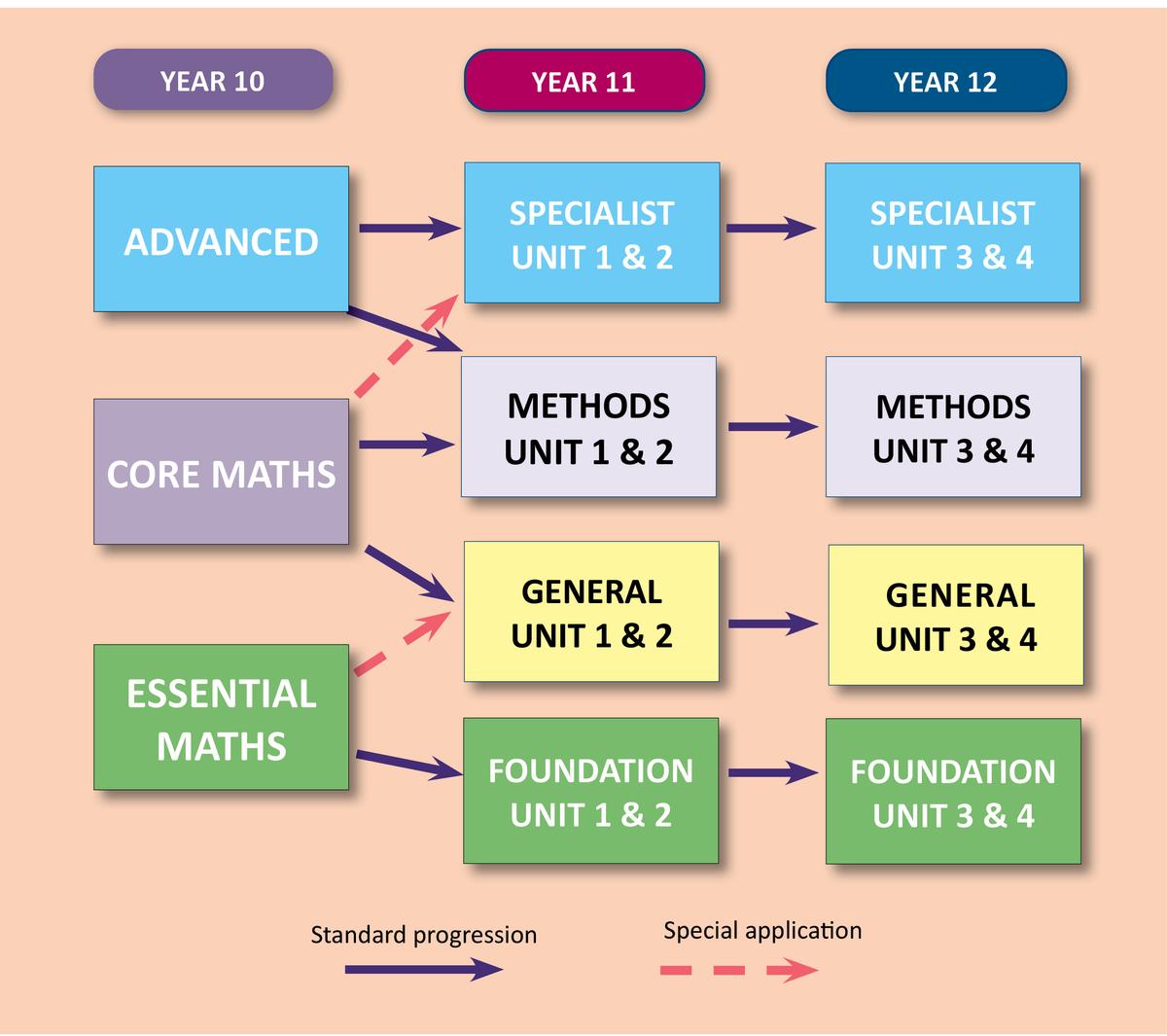Mathematics
This is a compulsory study at Year 10.

Mathematics
This is a compulsory study at Year 10.
At Year 10, there are three streams of mathematics that will allow students with a different range of abilities to engage in different modes of learning to further develop their mathematical knowledge and skills. These three streams are: Essential Mathematics, Core Mathematics and Advanced Mathematics.
Each student will be placed into a specific stream which will be informed by a range of data including teacher recommendations, Year 9 assessment grades, study habits, organisational skills, NAPLAN and PAT data. The majority of students in Year 10 will study Core Mathematics.
Strand | Stream |
Mathematics | Essential |
Core | |
Advanced |


While the curriculum content for both Core Mathematics and Advanced Mathematics cover similar topics and the same dimensions, the Advanced Mathematics class will work more quickly through the core coursework, complete topics in more depth and explore introductory topics from VCE Maths Methods and Specialist Maths. Core Mathematics will cater for students who are working more towards further mathematical studies in VCE General Maths.
The Essential Maths course provides for the continuing development mathematical skills to support students with the mathematical content of their other subjects and build confidence in numeracy skills for life. Students focus on the mathematical knowledge, skills, understanding and dispositions to solve problems in real contexts for a range of workplace, personal, further learning, and community settings relevant to contemporary society. Essential maths progresses to VCE Foundation Maths Unit 1&2 or to General Mathematics (based on student achievement levels and by the recommendation of the teacher).
Aim
Content
Additional topics for Advanced Maths
Special conditions
Students should retain their CAS (Computer Algebra System) calculator from Year 9 as it will be a key resource for their Year 10 and subsequent VCE maths studies.
Assessment
Students will complete three CAT tasks per semester covering the Victorian Curriculum 2.0 strands of Number, Algebra, Measurement, Space, Statistics and Probability. CAT structures will vary between topic tests, problem solving/modelling tasks, collaborative investigation tasks that all require the application of the mathematical content studied. Students will also sit two end-of semester exams.
Note: